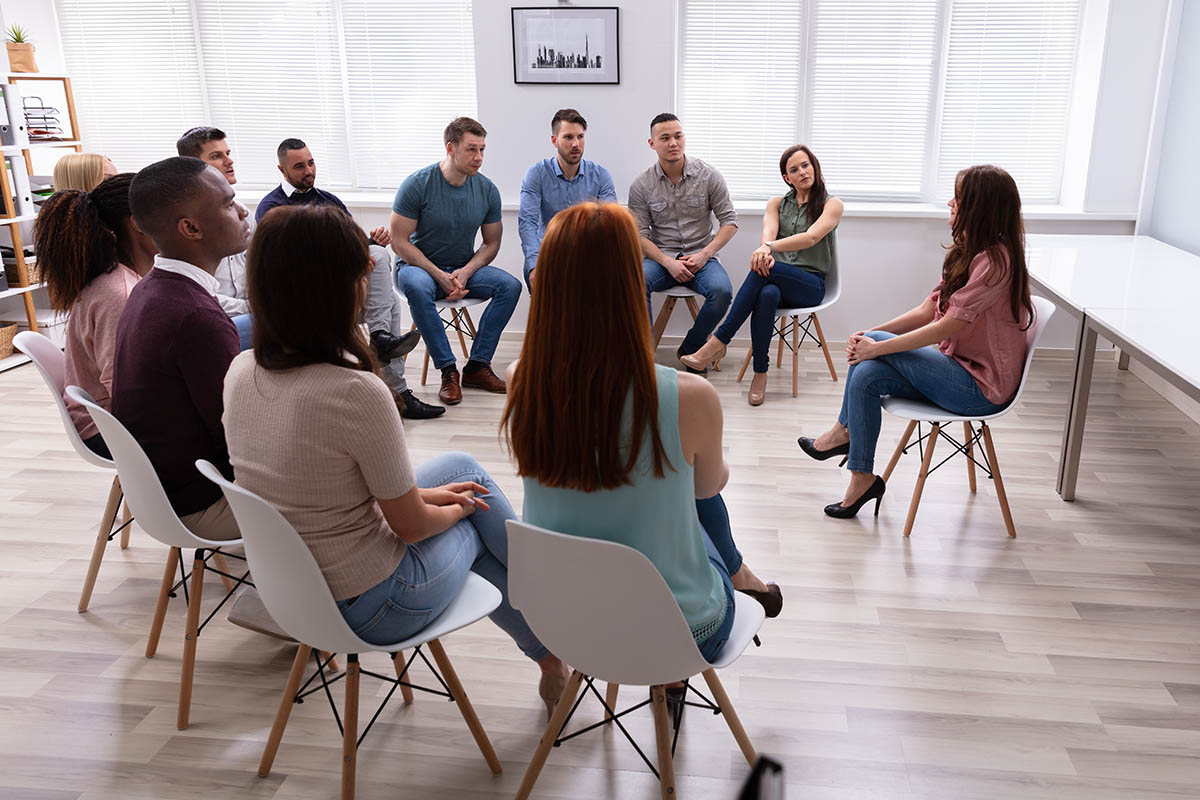Substance addiction is a complex brain disorder that can affect anyone; it knows no age, gender, race, or social class. It involves a person’s physical health, emotional state, mental health, and abilities to socialize, which affects every area of their life. There are multiple types of therapies geared at ensuring recovery for people struggling with addiction.
At Midwest Recovery Center, we understand that each case is unique. Different patients struggle with addictions for diverse reasons, experience addiction differently, and, consequently, require specific treatment plans to suit their needs.
Types of Addiction Treatment Therapies
Treatment centers can use addiction therapies independently or in combinations to derive the best results. They occur in a group or individual therapy session, teaching the participants skills they need to stay sober while navigating stressful situations. Some of the different types of addiction therapies include:
- Cognitive Behavioral Therapy (CBT) – this type of therapy teaches patients to recognize and change maladaptive behaviors that fuel substance abuse. Individuals go through sessions that equip them with coping skills, the ability to identify risky situations, and how best to navigate them while avoiding a relapse.
- Motivational interviewing (MI) – MI allows individuals to embrace their treatment efforts in a manner that best affects their substance use behavior. Even though a qualified healthcare provider conducts it, patients develop a sense of control over their treatment with time.
- Rational Emotive Behavior Therapy (REBT) – REBT works to create a healthier relationship between the patient’s thoughts, habits, and rationale. It works to remove the notion that external factors give feelings of happiness or sadness.
- Dialectal Behavioral Therapy (DBT) – DBT focuses on treating personality disorders such as borderline personality disorders. The aim is to help patients give up actions that encourage substance use, avoid relapse opportunities, and learn coping skills.
- Contingency Management (CM) – This therapy method utilizes material rewards as motivation for healthy practices and reinforces sobriety.
- 12-step-facilitation – The 12 step facilitation therapy works to engage individuals in a step by step recovery support group which encourages abstinence and accountability
Complementary Therapy Treatment Plans
The various addiction treatment therapies seek to treat the whole person by incorporating other approaches such as dual diagnosis, which identifies co-occurring disorders such as mental disorders that could fuel addiction. Treatment of both the psychological condition and addiction promises better results towards recovery. At Midwest Recovery Center, additional therapies have proven to be effective and increase chances at long-term recovery. These include:
- Recreational therapy – This method involves using fun recreational activities to engage both the body and mind to ensure better mental and physical health. It involves social interaction, which helps develop social skills, physical exercise through sports, dance, yoga, and art and crafts, which provides a therapeutic outlet.
- Medication-Assisted Treatment (MAT) – This includes the combination of multiple addiction therapies. Qualified medical professionals administer regulated doses to help counter the addiction as the patients go through detox. At the same time, the patient also engages with other therapies to identify their addiction’s root.
- Trauma-focused therapy helps identify and unpack traumatic occurrences that may have been a factor leading to substance abuse. Addressing the trauma helps eliminate the issue at the root level and, consequently, poses better long-term recovery chances.
- Expressive therapy – The primary skill taught through this treatment mode is communication, which equips the patient with skills that effectively communicate and process their emotions. Such activities include dancing, writing, visual art, and making music.
- Family therapy – Addiction puts a strain on relationships and often works to isolate the user. Family therapy helps mend broken relationships, develop healthy boundaries and habits, and empower the family as a unit, crucial for recovery.
Addiction Treatment at Midwest Recovery Center
Different patients respond differently to the various available addiction therapies, and consequently, there is a need for a tailor-made treatment plan unique to each patient. At Midwest Recovery Center, we design a treatment course unique to each patient to ensure the best results for long-term recovery. Contact Midwest Recovery Center at 833.627.0039, or contact us online to make sure you meet your recovery goals.







